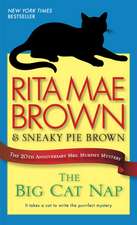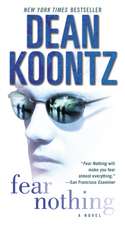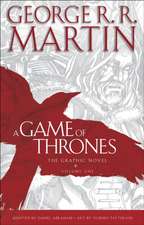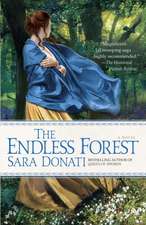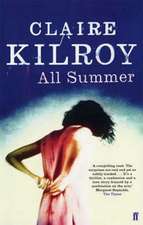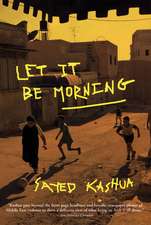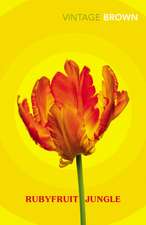Murder at Monticello: Mrs. Murphy Mysteries (Paperback)
Autor Rita Mae Brown Ilustrat de Wendy Wray Sneaky Pie Brownen Limba Engleză Paperback – 31 aug 1995
The most popular citizen of Virginia has been dead for nearly 170 years. That hasn't stopped the good people of tiny Crozet, Virginia, from taking pride in every aspect of Thomas Jefferson's life. But when an archaeological dig of the slave quarters at Jefferson's home, Monticello, uncovers a shocking secret, emotions in Crozet run high—dangerously high.
The stunning discovery at Monticello hints a hidden passions and age-old scandals. As postmistress Mary Minor "Harry" Haristeen and some of Crozet's Very Best People try to learn the identity of a centuries-old skeleton—and the reason behind the murder—Harry's tiger cat, Mrs. Murphy, and her canine and feline friends attempt to sniff out a modern-day killer. Mrs. Murphy and corgi Tee Tucker will stick their paws into the darker mysteries of human nature to solve murders old and new—before curiosity can kill the cat—and Harry Haristeen.
Preț: 49.88 lei
Nou
Puncte Express: 75
Preț estimativ în valută:
9.55€ • 10.37$ • 8.03£
9.55€ • 10.37$ • 8.03£
Carte disponibilă
Livrare economică 31 martie-14 aprilie
Preluare comenzi: 021 569.72.76
Specificații
ISBN-13: 9780553572353
ISBN-10: 0553572350
Pagini: 320
Ilustrații: 10 LINE ILLUSTRATIONS
Dimensiuni: 108 x 173 x 22 mm
Greutate: 0.16 kg
Ediția:Bantam Mass Mar.
Editura: Bantam
Seria Mrs. Murphy Mysteries (Paperback)
ISBN-10: 0553572350
Pagini: 320
Ilustrații: 10 LINE ILLUSTRATIONS
Dimensiuni: 108 x 173 x 22 mm
Greutate: 0.16 kg
Ediția:Bantam Mass Mar.
Editura: Bantam
Seria Mrs. Murphy Mysteries (Paperback)
Notă biografică
Rita Mae Brown is the bestselling author of several books. An Emmy-nominated screenwriter and a poet, she lives in Afton, Virginia.
Sneaky Pie Brown, a tiger cat born somewhere in Albemarle County, Virginia, was discovered by Rita Mae Brown at her local SPCA. They have collaborated on fourteen previous Mrs. Murphy mysteries: Sour Puss; Wish You Were Here; Rest in Pieces; Murder at Monticello; Pay Dirt; Murder, She Meowed; Murder on the Prowl; Cat on the Scent; Pawing Through the Past; Claws and Effect; Catch as Cat Can; The Tail of the Tip-Off; Whisker of Evil; and Cat’s Eyewitness, in addition to Sneaky Pie’s Cookbook for Mystery Lovers.
Sneaky Pie Brown, a tiger cat born somewhere in Albemarle County, Virginia, was discovered by Rita Mae Brown at her local SPCA. They have collaborated on fourteen previous Mrs. Murphy mysteries: Sour Puss; Wish You Were Here; Rest in Pieces; Murder at Monticello; Pay Dirt; Murder, She Meowed; Murder on the Prowl; Cat on the Scent; Pawing Through the Past; Claws and Effect; Catch as Cat Can; The Tail of the Tip-Off; Whisker of Evil; and Cat’s Eyewitness, in addition to Sneaky Pie’s Cookbook for Mystery Lovers.
Extras
Chapter One
Laughing, Mary Minor Haristeen studied the nickel in her upturned palm. Over the likeness of Monticello was inscribed our nation's motto, E Pluribus Unum. She handed the nickel to her older friend, Mrs. Miranda Hogendobber. "What do you think?"
"That nickel isn't worth a red cent." Mrs. Hogendobber pursed her melon-tinted lips. "And the nickel makes Monticello appear so big and impersonal when it's quite the reverse, if you'll forgive the pun."
The two women, one in her mid-thirties and the other at an age she refused to disclose, glanced up from the coin to Monticello's west portico, its windows aglow with candlelight from the parlor behind as the last rays of the early spring sun dipped behind the Blue Ridge Mountains.
If the friends had strolled to the front door of Thomas Jefferson's house, centered in the east portico, and then walked to the edge of the lawn, they would have viewed a sea of green, the ever-flattening topography to Richmond and ultimately to the Atlantic Ocean.
Like most born residents of central Virginia's Albemarle County, Harry Haristeen, as she was known, and Miranda Hogendobber could provide a fascinating tour of Monticello. Miranda would admit to being familiar with the estate since before World War II, but that was all she would admit. Over the decades increasing restoration work on the house itself, the dependencies, and gardens, both food and flowering, had progressed to the point where Monticello was the pride of the entire United States. Over a million out-of-town visitors a year drove up the tricky mountain road to pay their eight dollars, board a jitney bus, and swirl around an even twistier road to the top of the hill and thence the redbrick structure--each brick fashioned by hand, each hinge pounded out in a smithy, each pane of glass painstakingly blown by a glassmaker, sweating and puffing. Everything about the house suggested individual contribution, imagination, simplicity.
As the tulips braved the quickening western winds, Harry and Mrs. Hogendobber, shivering, walked around the south side of the grounds by the raised terrace. A graceful silver maple anchored the corner where they turned. When they reached the front they paused by the large doors.
"I'm not sure I can stand this." Harry took a deep breath.
"Oh, we have to give the devil his due, or should I say her due?" Mrs. Hogendobber smirked. "She's been preparing for this for six decades. She'll say four, but I've known Mim Sanburne since the earth was cooling."
"Isn't this supposed to be the advantage of living in a small town? We know everyone and everyone knows us?" Harry rubbed her tight shoulder muscles. The temperature had dropped dramatically. "Well, okay, let's brave Mim, the Jefferson expert."
They opened the door, slipping in just as the huge clock perched over the entrance notched up seven p.m. The day, noted by a weight to the right as one faced the door, read Wednesday. The Great Clock was one of Jefferson's many clever innovations in the design of his home. Even great minds err, however. Jefferson miscalculated the weight and pulley system and ran out of room to register all the days of the week in the hall. Each Friday the day weight slipped through a hole in the floor to the basement, where it marked Friday afternoon and Saturday. The weight then reappeared in the hall on Sunday morning, when the clock was wound.
Harry and Mrs. Hogendobber had arrived for a small gathering of Albemarle's "best," which is to say those whose families had been in Virginia since before the Revolution, those who were glamorous and recently arrived from Hollywood, which Harry dubbed Hollyweird, and those who were rich. Harry fell into the first category, as did Mrs. Hogendobber. As the postmaster--Harry preferred the term postmistress--of the small town of Crozet, Mary Minor Haristeen would never be mistaken for rich.
Marilyn Sanburne, known as Mim or Big Marilyn, clasped and unclasped her perfectly manicured hands. The wife of Crozet's mayor and one of Albemarle's richer citizens, she should have been cool as a cucumber. But a slight case of nerves rattled her as she cast her eyes over the august audience, which included the director of Monticello, the exuberant and fun-loving Oliver Zeve. The head of archaeology, Kimball Haynes, at thirty quite young for such a post, stood at the back of the room.
"Ladies and gentlemen"--Mim cleared her throat while her daughter, Little Marilyn, thirty-two, viewed her mother with a skillful show of rapt attention--"thank you all for taking time out from your busy schedules to gather with us tonight on this important occasion for our beloved Monticello."
"So far so good," Mrs. Hogendobber whispered to Harry.
"With the help of each one of you, we have raised five hundred thousand dollars for the purpose of excavating and ultimately restoring the servants' quarters on Mulberry Row."
As Mim extolled the value of the new project, Harry reflected on the continued duplicity that existed in her part of the world. Servants. Ah, yes, servants--not slaves. Well, no doubt some of them were cherished, beloved even, but the term lent a nice gloss to an ugly reality--Mr. Jefferson's Achilles' heel. He was so tremendously advanced in most ways, perhaps it was churlish to wish he had been more advanced about his source of labor. Then again, Harry wondered what would happen if the shoe were on her foot: Would she be able to refuse a skilled labor force? She would need to house them, clothe them, feed them, and provide medical care. Not that any of that was cheap, and maybe in today's dollars it would add up to more than a living wage. Still, the moral dilemma if one was white, and Harry was white, nagged at her.
Nonetheless, Mim had provided the driving energy behind this project, and its progress was a great personal victory for her. She had also made the largest financial contribution to it. Her adored only son had sped away from Crozet to marry a sophisticated model, a flashy New York lady who happened to be the color of cafe au lait. For years Mim had refused her son entry to the ancestral mansion, but two years ago, thanks to a family crisis and the soft words of people like Miranda Hogendobber, Big Marilyn had consented to let Stafford and Brenda come home for a visit. Confronting one's own prejudices is never easy, especially for a person as prideful as Mim, but she was trying, and her efforts to unearth this portion of Monticello's buried history were commendable.
Harry's eyes swept the room. A few Jefferson descendants were in attendance. His daughters, Martha and Maria, or Patsy and Polly as they were called within the family, had provided T.J. with fifteen grandchildren. Those surviving out of that generation in turn provided forty-eight great-grandchildren. The names of Cary, Coles, Randolph, Eppes, Wayles, Bankhead, Coolidge, Trist, Meikleham, and Carr were carrying various dilutions of Jefferson blood into the twentieth century and, soon, the twenty-first.
Tracing one's bloodlines back to the original red-haired resident of Monticello was a bit like tracing every Thoroughbred's history back to the great sires: Eclipse, 1764; Herod, 1758; and Matchem, 1748.
Nonetheless, people did it. Mim Sanburne herself adamantly believed she was related to the great man on her mother's side through the Wayles/Coolidge line. Given Mim's wealth and imperious temperament, no one challenged her slender claim in the great Virginia game of ancestor worship.
Harry's people had lurched onto Virginia's shores in 1640, but no intertwining with Mr. Jefferson's line was ever claimed. In fact, both her mother's family, the Hepworths, and her father's seemed content to emphasize hard work in the here and now as opposed to dwelling on a glorious past.
Having fought in every conflict from the French and Indian War to the Gulf crisis, the family believed its contributions would speak for themselves. If anything, her people were guilty of reverse snobbery and Harry daily fought the urge to deflate Mim and her kind.
Once she had overcome her nerves, commanding the spotlight proved so intoxicating to Big Marilyn that she was loath to relinquish it. Finally, Oliver Zeve began the applause, which drowned out Mim's oratory, although she continued to speak until the noise overwhelmed her. She smiled a tight smile, nodded her appreciation--not a hair out of place--and sat down.
Mim's major fund-raising victims, Wesley Randolph and his son Warren, Samson Coles, and Center Berryman, applauded vigorously. Wesley, a direct descendant of Thomas Jefferson through Thomas's beloved older daughter, Martha, had been consistently generous over the decades. Samson Coles, related to Jefferson through his mother, Jane Randolph, gave intermittently, according to the fluctuations of his real estate business.
Wesley Randolph, fighting leukemia for the last year, felt a strong need for continuity, for bloodlines. Being a Thoroughbred breeder, this was probably natural for him. Although the cancer was in remission, the old man knew the sands in the hourglass were spinning through the tiny passage to the bottom. He wanted his nation's past, Jefferson's past, preserved. Perhaps this was Wesley's slender grasp on immortality.
After the ceremony Harry and Mrs. Hogendobber returned to Oliver Zeve's house, where Mrs. Murphy and Tee Tucker, Harry's tiger cat and Welsh corgi respectively, awaited her. Oliver owned a fluffy white Persian, one Archduke Ferdinand, who used to accompany him to Monticello to work. However, children visiting the shrine sometimes pestered Archduke Ferdinand until he spit and scratched them. Although the archduke was within his feline rights, Oliver thought it best to keep him home. This was a great pity, because a cat will see a national shrine with a sharper eye than a human.
Then, too, Archduke Ferdinand believed in a hereditary nobility that was quite at odds with Jefferson's point of view.
As of this moment the archduke was watching Mrs. Murphy from a vantage point at the top of the huge ficus tree in Oliver's living room.
Kimball, who accompanied them, exclaimed, "The female pursues the male. Now, I like that idea."
Mrs. Murphy turned her head. "Oh, please. Archduke Ferdinand is not my type."
The Archduke growled, "Oh, and Paddy is your type? He's as worthless as tits on a boar hog."
Mrs. Murphy, conversant with her ex-husband's faults, nonetheless defended him. "We were very young. He's a different cat now."
"Ha!" the Archduke exploded.
"Come on, Mrs. Murphy, I think you're wearing out your welcome." Harry leaned over and scooped up the reluctant tiger cat who was relishing the archduke's discomfort.
Oliver patted Harry on the back. "Glad you could attend the ceremony."
"Well, I'm not. We didn't see a single thing!" Harry's little dog grumbled.
Mrs. Hogendobber slung her ponderous purse over her left forearm and was already out the door.
"A lot of goodwill come from Mim's check." Kimball smiled as Harry and Mrs. H. climbed into the older woman's pristine Ford Falcon.
Kimball would have occasion to repent that remark.
Chapter Two
One of the things that fascinated Harry about the four distinct seasons in central Virginia was the quality of the light. With the advent of spring the world glowed yet retained some of the softness of the extraordinary winter light. By the spring equinox the diffuse quality would disappear and brightness would take its place.
Harry often walked to the post office from her farm on Yellow Mountain Road. Her old Superman-blue pickup, nursed throughout the years, needed the rest. The early morning walk awakened her not just to the day but to the marvelous detail of everyday life, to what motorists only glimpse as they speed by, if they notice at all. The swelling of a maple bud, the dormant gray hornet's nest as big as a football, the brazen cries of the ravens, the sweet smell of the earth as the sun warmed her; these precious assaults on the senses kept Harry sane. She never could understand how people could walk with pavement under their feet, smog in their eyes, horns blaring, boom boxes blasting, their daily encounters with other human beings fraught with rudeness if not outright danger.
Considered a failure by her classmates at Smith College, Harry felt no need to judge herself or them by external standards. She had reached a crisis at twenty-seven when she heard her peers murmur incessantly about career moves, leveraged debt, and, if they were married, producing the firstborn. Well, at that time she was married to her high school sweetheart, Pharamond Haristeen, D.V.M., and it was good for a while. She never did figure out if the temptations of those rich, beautiful women on those huge Albemarle County farms had weakened her big blond husband's resolve, or if over time they would have grown apart anyway. They had divorced. The first year was painful, the second year less so, and now, moving into the third year of life without Fair, she felt they were becoming friends. Indeed, she confided to her best girlfriend, Susan Tucker, she liked him more now than when they were married.
Mrs. Hogendobber originally blew smoke rings around Harry's head over the divorce. She finally calmed down and took up the task of matchmaking, trying to set up Harry with Blair Bainbridge, a divinely handsome man who had moved next door to Harry's farm. Blair, however, was on a fashion shoot in Africa these days. As a model he was in hot demand. Blair's absence drew Fair back into Harry's orbit, not that he was ever far from it. Crozet, Virginia, provided her citizens with the never-ending spectacle of love found, love won, love lost, and love found again. Life was never dull.
Maybe that's why Harry didn't feel like a failure, no matter how many potentially embarrassing questions she was asked at those Smith College reunions. Lots of squealing around the daisy chain was how she thought of them. But she jumped out of bed every morning eager for another day, happy with her friends, and contented with her job at the post office. Small though the P.O. was, everybody dropped in to pick up their mail and have a chat, and she enjoyed being at the center of activity.
Mrs. Murphy and Tee Tucker worked there too. Harry couldn't imagine spending eight to ten hours each day away from her animals. They were too much fun.
As she walked down Railroad Avenue, she noticed that Reverend Herb Jones's truck was squatting in front of the Lutheran church with a flat. She walked over.
"No spare," she said to herself.
"They don't pay him enough money," Mrs. Murphy stated with authority.
"How do you know that, smarty-pants?" Tucker replied.
"I've got my ways."
"Your ways? You've been gossiping with Lucy Fur, and all she does is eat communion wafers." Tucker said this gleefully, thrilled to prove that Herbie's new second cat desecrated the sacrament.
"She does not. That's Cazenovia over at St. Paul's. You think every church cat eats communion wafers. Cats don't like bread."
"Oh, yeah? What about Pewter? I've seen her eat a doughnut. 'Course, I've also seen her eat asparagus." Tucker marveled at the gargantuan appetite of Market Shiflett's cat. Since she worked in the grocery store next to the post office, the gray animal was constantly indulged. Pewter resembled a furry cannonball with legs.
Mrs. Murphy leapt on the running board of the old stepside truck as Harry continued to examine the flat. "Doesn't count. That cat will eat anything."
Laughing, Mary Minor Haristeen studied the nickel in her upturned palm. Over the likeness of Monticello was inscribed our nation's motto, E Pluribus Unum. She handed the nickel to her older friend, Mrs. Miranda Hogendobber. "What do you think?"
"That nickel isn't worth a red cent." Mrs. Hogendobber pursed her melon-tinted lips. "And the nickel makes Monticello appear so big and impersonal when it's quite the reverse, if you'll forgive the pun."
The two women, one in her mid-thirties and the other at an age she refused to disclose, glanced up from the coin to Monticello's west portico, its windows aglow with candlelight from the parlor behind as the last rays of the early spring sun dipped behind the Blue Ridge Mountains.
If the friends had strolled to the front door of Thomas Jefferson's house, centered in the east portico, and then walked to the edge of the lawn, they would have viewed a sea of green, the ever-flattening topography to Richmond and ultimately to the Atlantic Ocean.
Like most born residents of central Virginia's Albemarle County, Harry Haristeen, as she was known, and Miranda Hogendobber could provide a fascinating tour of Monticello. Miranda would admit to being familiar with the estate since before World War II, but that was all she would admit. Over the decades increasing restoration work on the house itself, the dependencies, and gardens, both food and flowering, had progressed to the point where Monticello was the pride of the entire United States. Over a million out-of-town visitors a year drove up the tricky mountain road to pay their eight dollars, board a jitney bus, and swirl around an even twistier road to the top of the hill and thence the redbrick structure--each brick fashioned by hand, each hinge pounded out in a smithy, each pane of glass painstakingly blown by a glassmaker, sweating and puffing. Everything about the house suggested individual contribution, imagination, simplicity.
As the tulips braved the quickening western winds, Harry and Mrs. Hogendobber, shivering, walked around the south side of the grounds by the raised terrace. A graceful silver maple anchored the corner where they turned. When they reached the front they paused by the large doors.
"I'm not sure I can stand this." Harry took a deep breath.
"Oh, we have to give the devil his due, or should I say her due?" Mrs. Hogendobber smirked. "She's been preparing for this for six decades. She'll say four, but I've known Mim Sanburne since the earth was cooling."
"Isn't this supposed to be the advantage of living in a small town? We know everyone and everyone knows us?" Harry rubbed her tight shoulder muscles. The temperature had dropped dramatically. "Well, okay, let's brave Mim, the Jefferson expert."
They opened the door, slipping in just as the huge clock perched over the entrance notched up seven p.m. The day, noted by a weight to the right as one faced the door, read Wednesday. The Great Clock was one of Jefferson's many clever innovations in the design of his home. Even great minds err, however. Jefferson miscalculated the weight and pulley system and ran out of room to register all the days of the week in the hall. Each Friday the day weight slipped through a hole in the floor to the basement, where it marked Friday afternoon and Saturday. The weight then reappeared in the hall on Sunday morning, when the clock was wound.
Harry and Mrs. Hogendobber had arrived for a small gathering of Albemarle's "best," which is to say those whose families had been in Virginia since before the Revolution, those who were glamorous and recently arrived from Hollywood, which Harry dubbed Hollyweird, and those who were rich. Harry fell into the first category, as did Mrs. Hogendobber. As the postmaster--Harry preferred the term postmistress--of the small town of Crozet, Mary Minor Haristeen would never be mistaken for rich.
Marilyn Sanburne, known as Mim or Big Marilyn, clasped and unclasped her perfectly manicured hands. The wife of Crozet's mayor and one of Albemarle's richer citizens, she should have been cool as a cucumber. But a slight case of nerves rattled her as she cast her eyes over the august audience, which included the director of Monticello, the exuberant and fun-loving Oliver Zeve. The head of archaeology, Kimball Haynes, at thirty quite young for such a post, stood at the back of the room.
"Ladies and gentlemen"--Mim cleared her throat while her daughter, Little Marilyn, thirty-two, viewed her mother with a skillful show of rapt attention--"thank you all for taking time out from your busy schedules to gather with us tonight on this important occasion for our beloved Monticello."
"So far so good," Mrs. Hogendobber whispered to Harry.
"With the help of each one of you, we have raised five hundred thousand dollars for the purpose of excavating and ultimately restoring the servants' quarters on Mulberry Row."
As Mim extolled the value of the new project, Harry reflected on the continued duplicity that existed in her part of the world. Servants. Ah, yes, servants--not slaves. Well, no doubt some of them were cherished, beloved even, but the term lent a nice gloss to an ugly reality--Mr. Jefferson's Achilles' heel. He was so tremendously advanced in most ways, perhaps it was churlish to wish he had been more advanced about his source of labor. Then again, Harry wondered what would happen if the shoe were on her foot: Would she be able to refuse a skilled labor force? She would need to house them, clothe them, feed them, and provide medical care. Not that any of that was cheap, and maybe in today's dollars it would add up to more than a living wage. Still, the moral dilemma if one was white, and Harry was white, nagged at her.
Nonetheless, Mim had provided the driving energy behind this project, and its progress was a great personal victory for her. She had also made the largest financial contribution to it. Her adored only son had sped away from Crozet to marry a sophisticated model, a flashy New York lady who happened to be the color of cafe au lait. For years Mim had refused her son entry to the ancestral mansion, but two years ago, thanks to a family crisis and the soft words of people like Miranda Hogendobber, Big Marilyn had consented to let Stafford and Brenda come home for a visit. Confronting one's own prejudices is never easy, especially for a person as prideful as Mim, but she was trying, and her efforts to unearth this portion of Monticello's buried history were commendable.
Harry's eyes swept the room. A few Jefferson descendants were in attendance. His daughters, Martha and Maria, or Patsy and Polly as they were called within the family, had provided T.J. with fifteen grandchildren. Those surviving out of that generation in turn provided forty-eight great-grandchildren. The names of Cary, Coles, Randolph, Eppes, Wayles, Bankhead, Coolidge, Trist, Meikleham, and Carr were carrying various dilutions of Jefferson blood into the twentieth century and, soon, the twenty-first.
Tracing one's bloodlines back to the original red-haired resident of Monticello was a bit like tracing every Thoroughbred's history back to the great sires: Eclipse, 1764; Herod, 1758; and Matchem, 1748.
Nonetheless, people did it. Mim Sanburne herself adamantly believed she was related to the great man on her mother's side through the Wayles/Coolidge line. Given Mim's wealth and imperious temperament, no one challenged her slender claim in the great Virginia game of ancestor worship.
Harry's people had lurched onto Virginia's shores in 1640, but no intertwining with Mr. Jefferson's line was ever claimed. In fact, both her mother's family, the Hepworths, and her father's seemed content to emphasize hard work in the here and now as opposed to dwelling on a glorious past.
Having fought in every conflict from the French and Indian War to the Gulf crisis, the family believed its contributions would speak for themselves. If anything, her people were guilty of reverse snobbery and Harry daily fought the urge to deflate Mim and her kind.
Once she had overcome her nerves, commanding the spotlight proved so intoxicating to Big Marilyn that she was loath to relinquish it. Finally, Oliver Zeve began the applause, which drowned out Mim's oratory, although she continued to speak until the noise overwhelmed her. She smiled a tight smile, nodded her appreciation--not a hair out of place--and sat down.
Mim's major fund-raising victims, Wesley Randolph and his son Warren, Samson Coles, and Center Berryman, applauded vigorously. Wesley, a direct descendant of Thomas Jefferson through Thomas's beloved older daughter, Martha, had been consistently generous over the decades. Samson Coles, related to Jefferson through his mother, Jane Randolph, gave intermittently, according to the fluctuations of his real estate business.
Wesley Randolph, fighting leukemia for the last year, felt a strong need for continuity, for bloodlines. Being a Thoroughbred breeder, this was probably natural for him. Although the cancer was in remission, the old man knew the sands in the hourglass were spinning through the tiny passage to the bottom. He wanted his nation's past, Jefferson's past, preserved. Perhaps this was Wesley's slender grasp on immortality.
After the ceremony Harry and Mrs. Hogendobber returned to Oliver Zeve's house, where Mrs. Murphy and Tee Tucker, Harry's tiger cat and Welsh corgi respectively, awaited her. Oliver owned a fluffy white Persian, one Archduke Ferdinand, who used to accompany him to Monticello to work. However, children visiting the shrine sometimes pestered Archduke Ferdinand until he spit and scratched them. Although the archduke was within his feline rights, Oliver thought it best to keep him home. This was a great pity, because a cat will see a national shrine with a sharper eye than a human.
Then, too, Archduke Ferdinand believed in a hereditary nobility that was quite at odds with Jefferson's point of view.
As of this moment the archduke was watching Mrs. Murphy from a vantage point at the top of the huge ficus tree in Oliver's living room.
Kimball, who accompanied them, exclaimed, "The female pursues the male. Now, I like that idea."
Mrs. Murphy turned her head. "Oh, please. Archduke Ferdinand is not my type."
The Archduke growled, "Oh, and Paddy is your type? He's as worthless as tits on a boar hog."
Mrs. Murphy, conversant with her ex-husband's faults, nonetheless defended him. "We were very young. He's a different cat now."
"Ha!" the Archduke exploded.
"Come on, Mrs. Murphy, I think you're wearing out your welcome." Harry leaned over and scooped up the reluctant tiger cat who was relishing the archduke's discomfort.
Oliver patted Harry on the back. "Glad you could attend the ceremony."
"Well, I'm not. We didn't see a single thing!" Harry's little dog grumbled.
Mrs. Hogendobber slung her ponderous purse over her left forearm and was already out the door.
"A lot of goodwill come from Mim's check." Kimball smiled as Harry and Mrs. H. climbed into the older woman's pristine Ford Falcon.
Kimball would have occasion to repent that remark.
Chapter Two
One of the things that fascinated Harry about the four distinct seasons in central Virginia was the quality of the light. With the advent of spring the world glowed yet retained some of the softness of the extraordinary winter light. By the spring equinox the diffuse quality would disappear and brightness would take its place.
Harry often walked to the post office from her farm on Yellow Mountain Road. Her old Superman-blue pickup, nursed throughout the years, needed the rest. The early morning walk awakened her not just to the day but to the marvelous detail of everyday life, to what motorists only glimpse as they speed by, if they notice at all. The swelling of a maple bud, the dormant gray hornet's nest as big as a football, the brazen cries of the ravens, the sweet smell of the earth as the sun warmed her; these precious assaults on the senses kept Harry sane. She never could understand how people could walk with pavement under their feet, smog in their eyes, horns blaring, boom boxes blasting, their daily encounters with other human beings fraught with rudeness if not outright danger.
Considered a failure by her classmates at Smith College, Harry felt no need to judge herself or them by external standards. She had reached a crisis at twenty-seven when she heard her peers murmur incessantly about career moves, leveraged debt, and, if they were married, producing the firstborn. Well, at that time she was married to her high school sweetheart, Pharamond Haristeen, D.V.M., and it was good for a while. She never did figure out if the temptations of those rich, beautiful women on those huge Albemarle County farms had weakened her big blond husband's resolve, or if over time they would have grown apart anyway. They had divorced. The first year was painful, the second year less so, and now, moving into the third year of life without Fair, she felt they were becoming friends. Indeed, she confided to her best girlfriend, Susan Tucker, she liked him more now than when they were married.
Mrs. Hogendobber originally blew smoke rings around Harry's head over the divorce. She finally calmed down and took up the task of matchmaking, trying to set up Harry with Blair Bainbridge, a divinely handsome man who had moved next door to Harry's farm. Blair, however, was on a fashion shoot in Africa these days. As a model he was in hot demand. Blair's absence drew Fair back into Harry's orbit, not that he was ever far from it. Crozet, Virginia, provided her citizens with the never-ending spectacle of love found, love won, love lost, and love found again. Life was never dull.
Maybe that's why Harry didn't feel like a failure, no matter how many potentially embarrassing questions she was asked at those Smith College reunions. Lots of squealing around the daisy chain was how she thought of them. But she jumped out of bed every morning eager for another day, happy with her friends, and contented with her job at the post office. Small though the P.O. was, everybody dropped in to pick up their mail and have a chat, and she enjoyed being at the center of activity.
Mrs. Murphy and Tee Tucker worked there too. Harry couldn't imagine spending eight to ten hours each day away from her animals. They were too much fun.
As she walked down Railroad Avenue, she noticed that Reverend Herb Jones's truck was squatting in front of the Lutheran church with a flat. She walked over.
"No spare," she said to herself.
"They don't pay him enough money," Mrs. Murphy stated with authority.
"How do you know that, smarty-pants?" Tucker replied.
"I've got my ways."
"Your ways? You've been gossiping with Lucy Fur, and all she does is eat communion wafers." Tucker said this gleefully, thrilled to prove that Herbie's new second cat desecrated the sacrament.
"She does not. That's Cazenovia over at St. Paul's. You think every church cat eats communion wafers. Cats don't like bread."
"Oh, yeah? What about Pewter? I've seen her eat a doughnut. 'Course, I've also seen her eat asparagus." Tucker marveled at the gargantuan appetite of Market Shiflett's cat. Since she worked in the grocery store next to the post office, the gray animal was constantly indulged. Pewter resembled a furry cannonball with legs.
Mrs. Murphy leapt on the running board of the old stepside truck as Harry continued to examine the flat. "Doesn't count. That cat will eat anything."
Recenzii
***12 "You don't have to be a cat lover to love Murder at Monticello."—Indianapolis Star
Descriere
Virginia postmistress Mary Minor Haristeen and Mrs. Murphy, her tiger-striped Sherlock, return for their third wise and witty adventure. Tracking down the identity of a 200-year-old corpse unearthed at Thomas Jefferson's home, and learning why someone today would kill to keep the identity hidden, keeps humans and animals alike on their toes.











